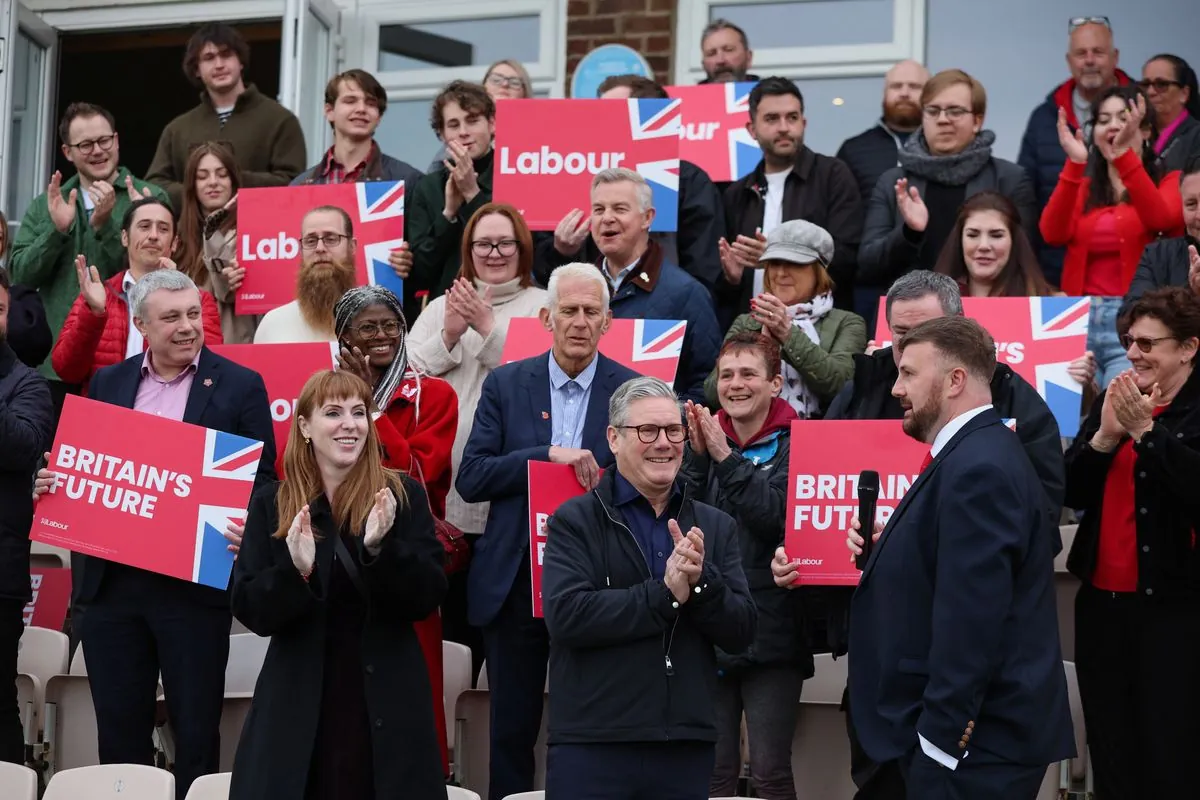Labour's Welfare Reform Dilemma: Balancing Cuts and Social Progress
Labour faces internal dissent over winter fuel payment cuts, while grappling with broader welfare reform challenges. Barnsley Council's study reveals untapped workforce potential, presenting an opportunity for social and economic revival.

The Labour Party is confronting internal discord over Keir Starmer's proposed cuts to winter fuel payments, a situation that highlights broader challenges in welfare reform. This controversy emerges as the party grapples with the complexities of modernizing the UK's social support system while maintaining its core values.

In Barnsley, South Yorkshire, a groundbreaking study has uncovered a potential workforce far larger than previously estimated. Sir Steve Houghton, leader of Barnsley Council, initiated a year-long investigation that revealed a significant number of individuals willing to work, despite being classified as unable to do so. This finding suggests that, if applied nationally, there could be three million more potential workers than current government figures indicate.
The study's implications are profound, offering a possible solution to the UK's twin challenges of labor shortages and high welfare costs. It presents an opportunity for Labour to frame welfare reform not as a punitive measure, but as a means of social empowerment and economic revitalization.
However, the party faces immediate hurdles. The proposed cuts to winter fuel payments have sparked a rebellion among Labour MPs, with ten already signing a motion against the changes. Critics argue that means-testing undermines the benefits of universalism and could exacerbate the hardships faced by those struggling with rising energy costs.
"The misery of rising energy bills will be compounded by a bureaucratic and unpopular means-test which undermines the benefits of universalism."
Proponents of the cuts, including Shadow Chancellor Rachel Reeves, contend that targeting support to those most in need is a sensible approach. They point out that a quarter of winter fuel payments currently go to millionaire households, questioning the logic of providing state handouts to the wealthy.
The welfare reform debate extends beyond winter fuel payments. The UK currently has 5.8 million people on out-of-work benefits, a figure that dwarfs the unemployment levels that shocked the nation during Margaret Thatcher's tenure. This situation is particularly acute in cities like Manchester, Liverpool, and Glasgow, where up to a fifth of the working-age population is on such benefits.
Compounding this issue is the rapid increase in disability benefit claims, particularly for mental health reasons. The system is reportedly adding 1,000 people per day to disability benefits, a trend expected to continue for the next five years. This surge presents both a financial challenge and a social crisis that demands urgent attention.
Liz Kendall, as Work and Pensions Secretary, faces the daunting task of implementing reforms that could save £3 billion while navigating potential legal challenges and opposition from disability advocacy groups. The proposed changes include making it harder to claim incapacity benefits and encouraging those with mobility issues to consider remote work options.
The Labour Party now has an opportunity to reframe the welfare debate. By drawing inspiration from the Barnsley study and the legacy of social reformers like William Beveridge, they could present a vision of welfare reform that aligns with progressive values while addressing pressing economic and social needs.
As Keir Starmer and his team confront these challenges, their ability to articulate a coherent and compassionate approach to welfare reform may well define their leadership and the party's future direction. The coming weeks and months will reveal whether Labour can transform this complex issue into a platform for meaningful social change and economic revival.


































